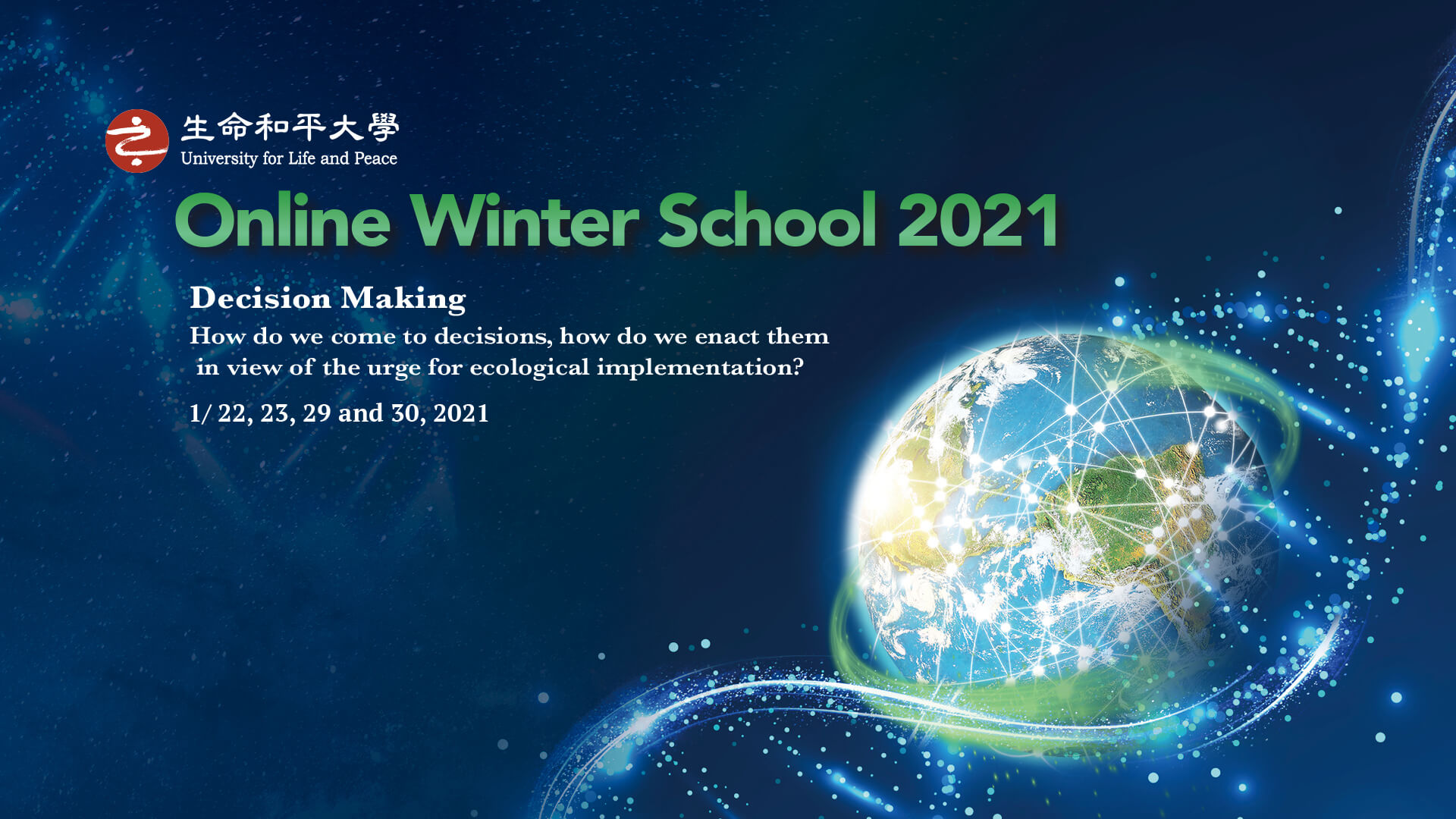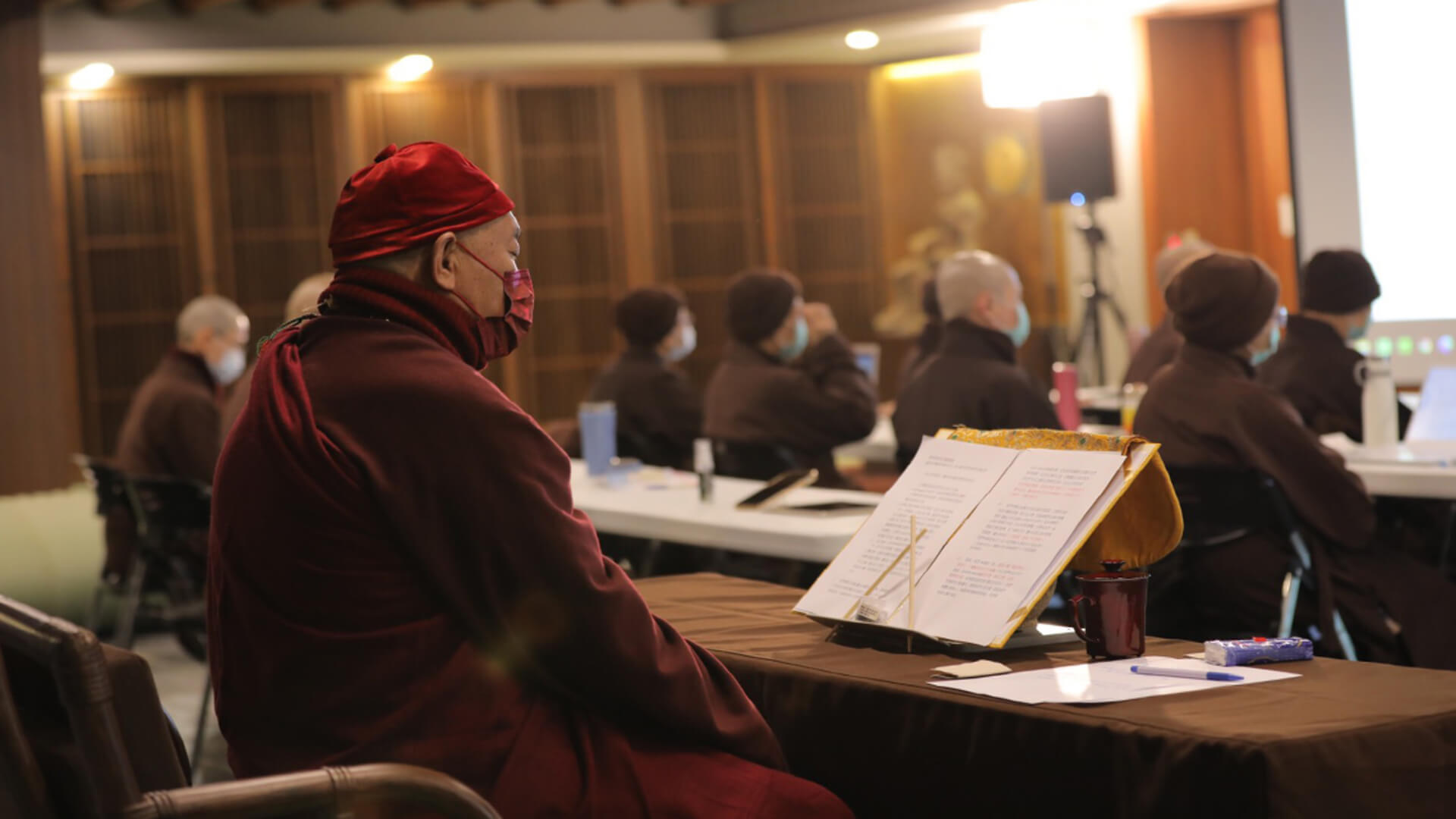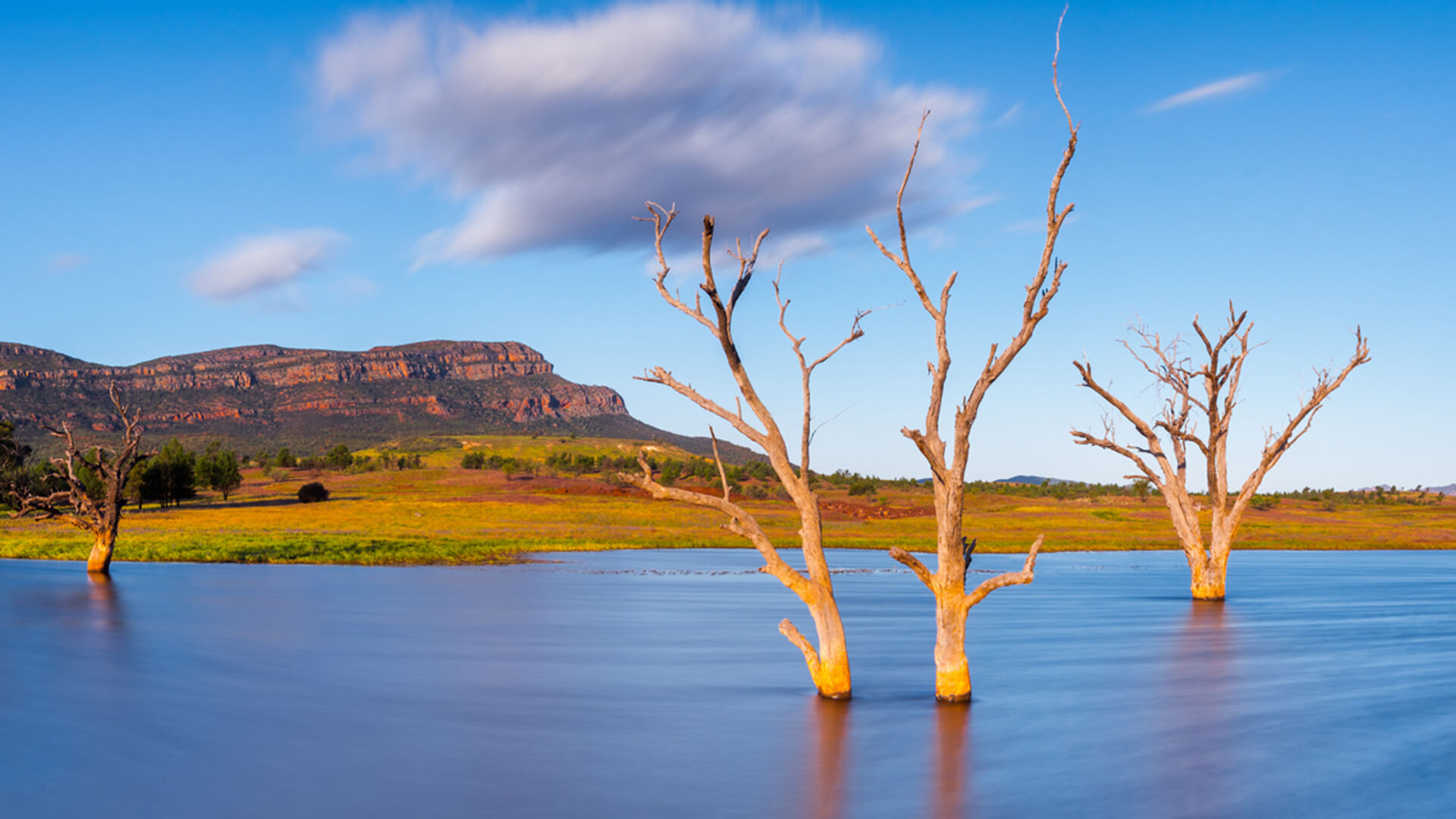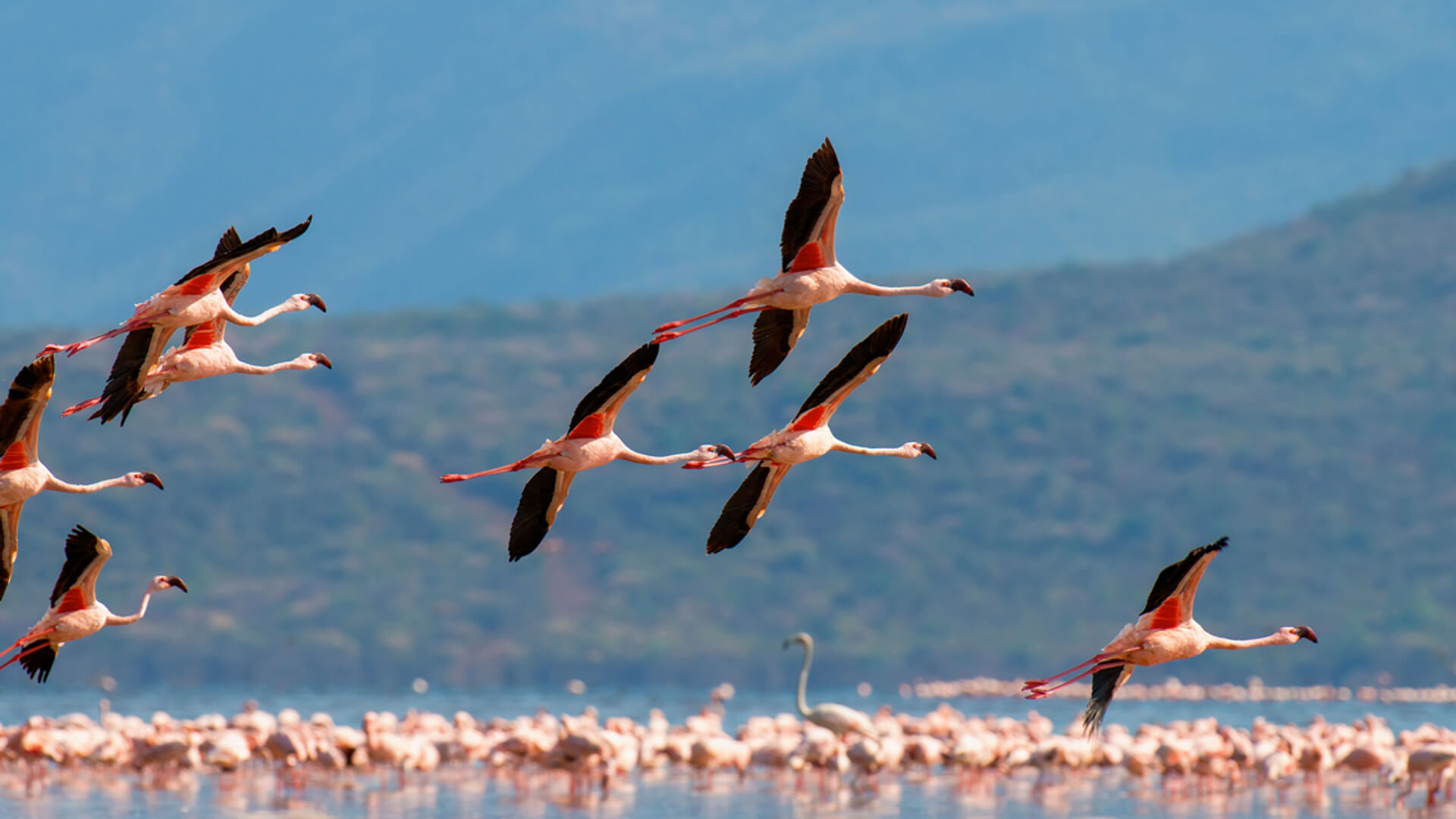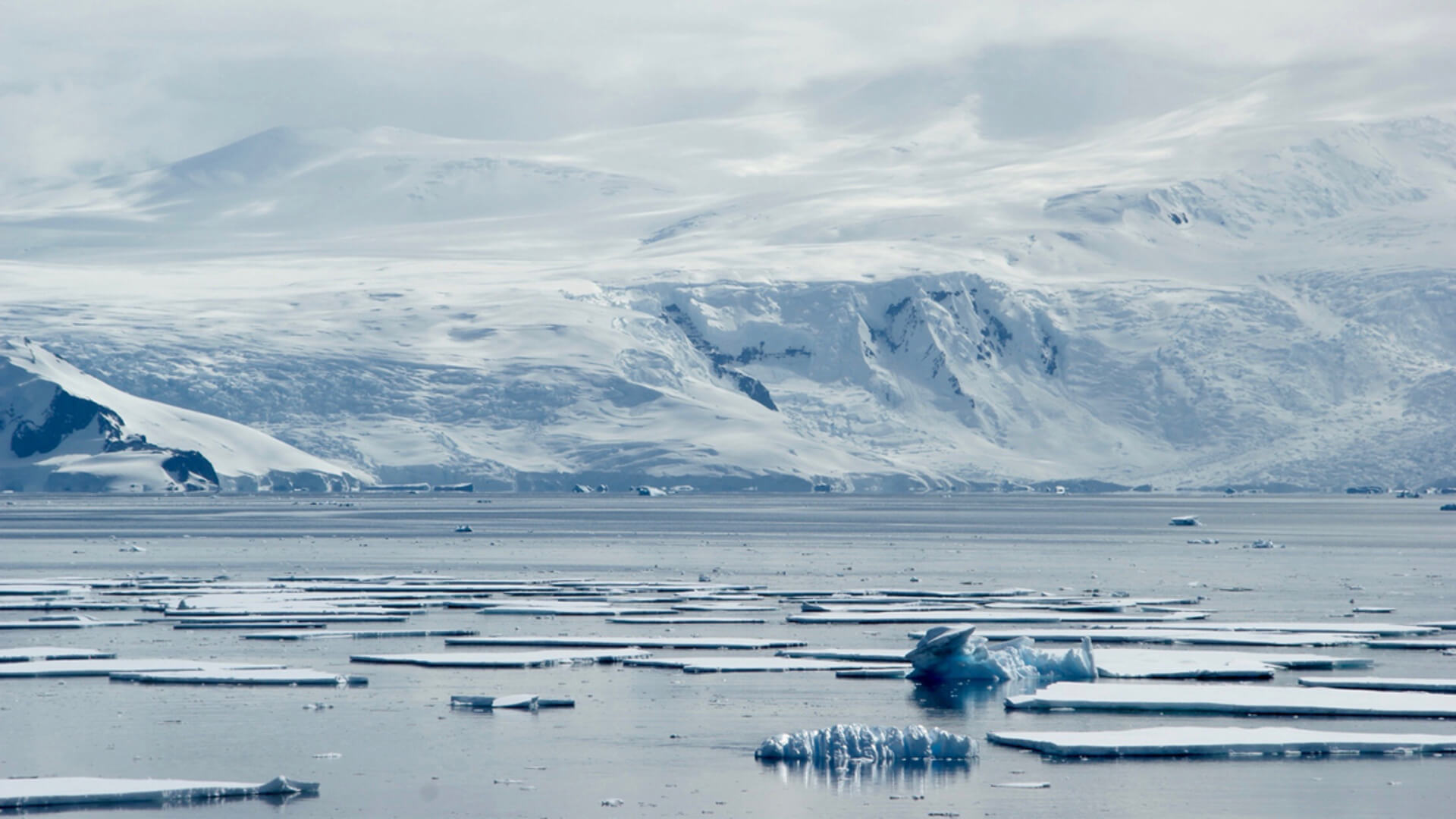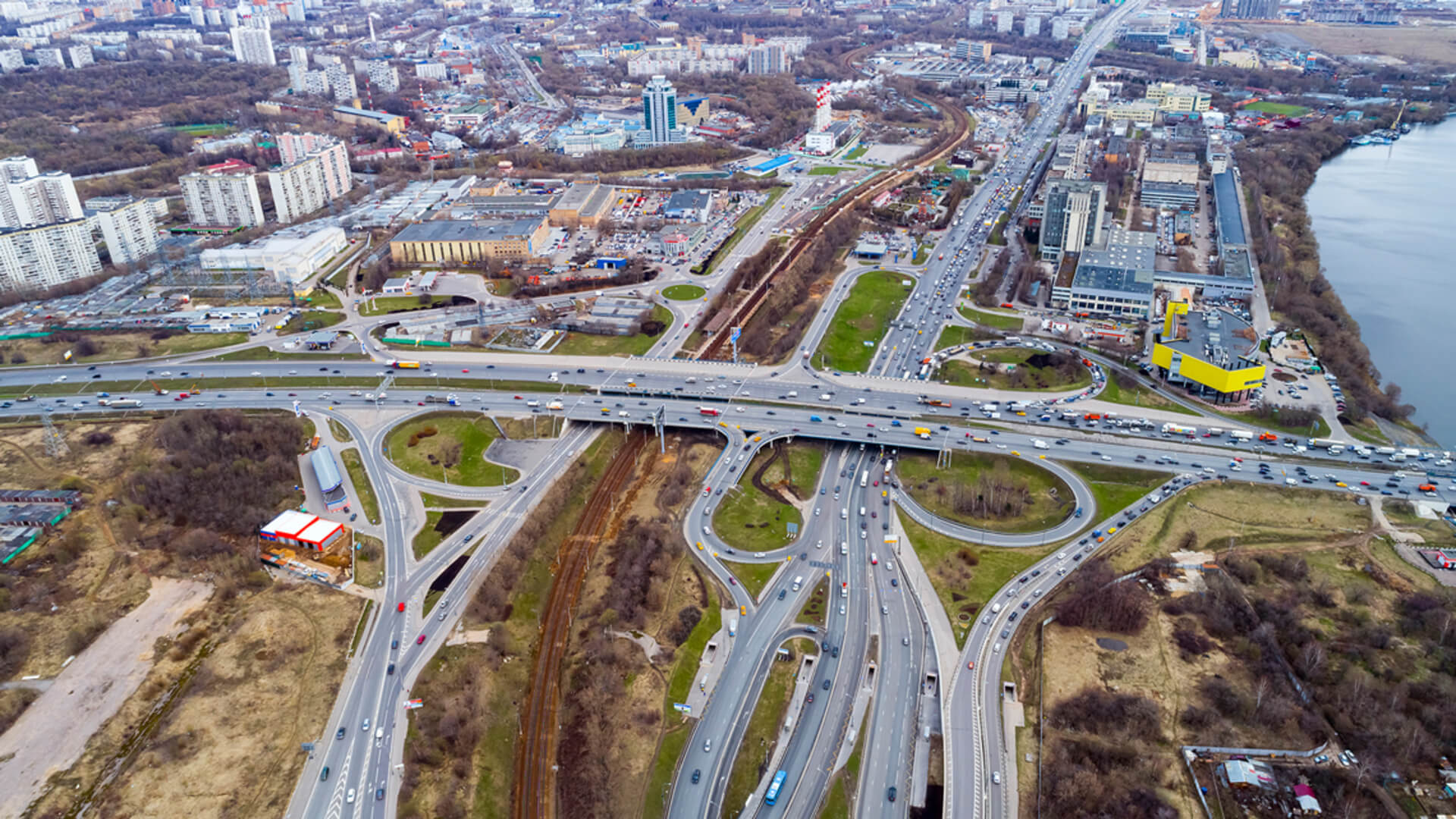General Introduction
All existence including life has local and temporal dimensions. Today human beings live in different local and global identities simultaneously.
Locally we live in specific physical environments, our languages, cultures and religions; globally we live as one humankind on our globe with limited resources and multiple communication systems in a network of responsibilities for other sentient beings and our globe.
Temporally we live in changing environments, in our inherited traditions and need to preserve and develop them in most accurate ways, at the same time, however, we live in a world of science, technology and interconnected systems with high complexity that produce rapid change, new possibilities as well as risks.
In order to understand our living conditions we need to connect local and global, classic and modern aspects of life and knowledge in intelligent ways. This is the precondition for developing useful strategies to act individually as well as politically for peace and justice. The University for Life and Peace will enact this connection in research and teaching to local students from Myanmar as well as international students from all over the world.
The College/University is based on Buddhist motivation though it is a secular university in its programs and degrees. The program will combine the wisdom experienced and taught in the Buddhist tradition with the needs of today’s social and individual development. It wants to apply the Buddhist tradition to the challenges of the modern world in the context of its relations to other religions and cultures. However, the modern world is based on development of sciences and technologies which are used to expand economics and politics on a global scale. In order to achieve harmony between differences in interests no religion, culture, economic system, political system, continent or country should dominate the world. Rather, different systems should understand their mutual interconnectedness and contribute to harmonious development of all what is good and wholesome for the betterment of life, human beings as well as other species, i.e. the biosphere in general. We need to understand that mutuality and a balance of interests are the only way to advance in local as well as global welfare: spiritually, culturally as well as economically, politically and ecologically. Therefore, the University will serve to ask the proper questions and to find useful answers for the right action of human beings in these times of change.
Society in Myanmar is in transition not only economically but also in its relation to other Asian countries and the global network of cultures, economies and countries. It is important that the noble Buddhist heritage of the country is made available especially to the youth in Myanmar in such a way that its meaning is understandable and related to the challenge of modernity. This is decisive in order to develop an identity that is oriented both on the values of the past and the demands of the future. The University is founded to make available the rich wisdom of the past to a present, which is busy in nation building and socio-economic development for the future so that sustainability is the fundamental frame for any policy and action. The University wants to actively contribute to those processes in order to enable human actors to realize that religious values and modern demands in science, technology and economy are not in contradiction but in harmonious relationship, if properly studied, interpreted and understood.
The University is founded to complement the established educational institutions and systems in Myanmar, it cannot substitute them. The classical studies and education in the Monastic Colleges of the Sangha are indispensable for the monastic education of the monks. The classical studies and education in the schools and universities of the country are indispensable for secular education in order to train people for their professions in life. The University for Life and Peace, however, dedicates Buddhist Studies to the Modern World in an interdisciplinary way, it will provide an additional training for future leaders on the national as well as the international level who want to combine their rooting in traditional Buddhist and Asian values with the knowledge of sciences and skills for modern life in a globalizing world with emphasis on developing a lifestyle and technical tools to overcome the worldwide ecological crisis.

An Action of Awakening to Heal The Earth (Part 1)
COVID-19 has been making its rounds around the world and we are still not yet out of the woods, while many research experts and scholars have sided with the view that, given the way global warming is going, the coronavirus is but a mere beginning of a global pandemic that would only multiply via more new strands with faster infections for spread-out. Damages inflicted upon Nature by humankind are the culprits, whereas climate change has turned out to be the biggest threat to people's health in the 21st century. The outbreak of the pandemic reveals a severe imbalance between man and Nature, and our destructive behavior toward Nature has clearly indicated how we have been endangering our own health. The breakout of the pandemic also made us realize how closely connected we actually are to all sentient beings, and that all beings are interdependent in an inter-reliant symbiosis. And when disasters strike, we could only then be spared of such man-made adversities by transcending negative energies via mindfulness and positive karma, by beginning to right the wrongs in our relationship with Nature and ecology in an analogy of the worldwide web as an intra-life support system, as well as by helping one another on the basis of the world being as one single living community for all sentient beings.
Buddha's teaching said that ‘all of Dharmahatu came from our mind’, which reassures us that things would change for the better if the intent is proper and mindful. Our conviction is the single most critical element that impacts the environment, and it influences our perception of ecology, has a direct bearing on the framework of ethics, and it dictates our material livelihood. To maintain people in peace and the world at peace, it takes the strengths of the vow of our compassion, and more importantly, mankind's wise and studied decision. Therefore, online courses of Winter School 2021 are based on spiritual ecology and aimed at forming future directives for ecology protection by way of interactions and dialogues throughout the process of learning from a diversified syllabus.
A Spiritual Awakening to Release the Impact of a Global Wake-up Call / The University for Life & Peace Channels Truth by Way of Science
A quick walk-through of 2020 recalls shock waves of disaster news that rival live-streaming of scenes from Apocalypse movies - from volcano eruptions in the Philippines, Africa's worst locust outbreak for thirty years, the sighting of more than 30-thousand bats blocking the skies of Australia, flood torrents in Indonesia, Australian wildfires that couldn’t be contained for 5 months, snowstorms in Canada, worst influenza for 40 years in the USA, with COVID-19 topping them all off that literally brought the world to a standstill socially as well as economically. The pandemic is still rampaging with no end yet in sight and lockdowns, repatriations, and bans of international flights becoming commonplace as part of people's daily life in the New Normal.
The global pandemic forced its way onto the radar of the world for governments to take a hard look at how wildlife and their natural habitat have been willfully exploited, only to highlight the amplified risks of animal-to-people infections that almost always quickly jumped to people-to-people outbreaks. Wildlife does not cause the spread of the virus, but human invasions of their habitat do. Mankind has been paying costly prices for the pandemic, for which there is no cure and the vaccines are not the answer. A United Nations report (Global Environment Outlook 6 - UNEP) quantified man-made destructions to the environment are causing the extinction of species by the million from land, skies, and oceans. For our own survival, we must see to it that the ecosystem is free of further damages and exploitations, and to restore the Earth's natural shield for people, the biodiversity must be protected first, which demands worldwide cooperation and deliverable actions. It, therefore, follows to claim that the anti-dose for the ecocrisis and the pandemic confronting the Earth is to safeguard ecology for our own safety's sake.
The objective of the future University for Life & Peace is to promote a platform and an interface for dialogues to channel truth scientifically, as well as to manifest peace initiatives to have a say in matters of ecology to trigger a global awakening to curb warfare. Ecology is key to the promotion of peace and there is only one Earth for all sentient beings. Any disruption to the ecology can kickstart chain reactions with dire consequences for us all. We are in this together and there is a need for an organization to promote such a global consensus and push a like-minded campaign worldwide. Such will be missions fit for the platform and interface the future University for Life & Peace is getting ready to launch.
To Save Planet Earth with Actions That Treat Root Causes / To Love The Earth by Enabling An Interdependent Co-existence and An Inter-reliant Symbiosis That Are Mutually Complementary
Globalization has enhanced economic exchanges and two-way communications between countries, thereby promoting market economics on a global scale to increase the world's collective wealth. Globalization, meanwhile, also enables the spread-out of pandemics. Tactics for environmental protection essentially fall into two categories -- short-term measures for treating symptoms as versus long-term endeavors for treating root causes. We are here to advocate deeds and actions for the latter that are substantial and not short-lived. But such deeds and actions can only be properly appreciated via education, and consensus achieved through mass communications. The future University for Live & Peace goes the lengths of education to highlight the stakes of crises our planet is faced with, and the probable way out by virtue of protections for the ecology with the insight that interdependence and mutual complementation between man and Nature is the only way that works as the word ‘symbiosis’ defines.
Universities are where trainings are offered and practices made to acquire skills. The University for Life & Peace aspires to help the world and people with healing by optimizing the University's platform for dialogues. It further aims at compiling results of group interactions and discussions of cross-domain topics and inter-disciplinary subjects for classroom materials. Thus accordingly, the campus becomes a nod that connects to the academics, religion, and businesses for consensus building about ecology 101s, so that prompt and co-ordinated actions can be implemented when ecological issues arise. Whatever the scenario, when you have a say in the matter, it is always possible to come up with a consensus that keeps warfare at bay and allows the Earth to run its natural course for positive cycles. The world has little or no use for warfare, and the University as a guardian for ecology strives to stop wars before they happen to ultimately circumvent the chain reaction.
The future University for Life & Peace is being established with a quintessential mission in mind, namely to help curb wars and calamities. At a time when the Earth's ecology finds itself at a critical juncture and Mother Earth has been sounding off sirens non-stop for ecological crises, the ecology-entric University is mission-critical and is being created to help harness ecological crises that plague our Earth.

An Action of Awakening to Heal The Earth (Part 2)
Respect, Tolerance, and Love Remain Unwavered as Our Original Determination / With Love and Peace, the World is One Big Family on Earth
When the Museum of World Religions (MWR) was still under construction, Dharma Master Hsin Tao already had ‘next steps’ in place. With a line-up of world religions it becomes self-evident that all faiths have their respectively rich contents derived from cultures that differ, yet a common denominator is the similar altruism and the spirit of love they share. The world’s faiths further share a common task that is to put a lid on the world’s disasters the sooner the better. The University for Life & Peace draws its founding principles from the MWR, whose trinity of respect, tolerance, and love can easily translate as a mutually complementary symbiosis among religions. The trinity also applies to ecology and, thus accordingly, testifies to the foresight and vision on the part of Dharma Master Hsin Tao. From the days of the MWR to the future University for Life & Peace, core essentials dear to Venerable Master Hsin Tao have always remained consistent to help the Ling Jiou Mountain Buddhist Society achieve and accumulate more positive karma in different forms and by different means.
All religions approach their respective mission by way of culture, and religion has no standpoint other than morality and compassion. Consequently, different religions move along the same pathway, because we all do the same thing in our different ways. And at the end of the day, it all comes down to morality and compassion. The same goes for the University for Life & Peace, in that its critical mission is to push ecology to the forefront as a global campaign to reach other religions first, therethrough the academics, and thereafter the governments of the world.
Chan Meditation is Core and equals Spirituality / Let's Respect Ecology for Nature's Rhythm
Between ecology and spirituality, there is respect, which echoes the respect, tolerance, and the common livelihood of selfless love as the MWR's core values. And selfless love, in turn, equals an inter-reliant co-existence and a diversified symbiosis, which the future University for Life & Peace upholds as ideals for guideposts. Nothing in the world can exist entirely by itself and the element of mutual complementation is a must. If something became extinct, also gone would be a certain mechanism and its innate strengths. Diversification implies the framework structure of a co-existence that rules out absolute singularity for a stand-alone existence. A diversified symbiosis came about in the process of the Earth's evolution to illustrate how Nature works and, put succinctly, how harmony in the neighborhood contributes and substantiates and not confrontations. Said differently, a diversified symbiosis thrives in harmony and deteriorates in confrontation and the same applies to a globalized world with all its different faiths and races.
And Chan meditation is Dharma Master Hsin Tao's lifelong dedication and commitment, that gave birth to the MWR, the future University for Life & Peace, and the ultimate altruism in all different shapes and forms, which can be collectively referred to as the promotion of Dharma to benefit all sentient beings. And what is Chan, you might ask. It is our core essence, it is spirituality, and it is consciousness, which in turn is an integral part of the ecology. Our mission is to connect spirituality, and to expand the contact points of each spirituality as a nod in itself is what the University will set out to endeavor.
Dharma Master Hsin Tao appeals to the public to adopt a new lifestyle to replace the existing one, as people's current lifestyle pushes the Earth toward extinction. The ecology runs by its own game rules that we disrupt due to disrespect and ignorance of how it works. Like in the animal world, there is a delicate balance that Nature dictates among herds of lions, rhinos, and deer, for example. Troubles and problems erupt when the balance tilts. Nature relies on its own auto-regulation for a balancing act and that is the spirituality we refer to, that warrants order and mutual complementation.
We Aspire to Become Part of The Force to Push for Sustainability
The main monastery of the LJM Buddhist Society goes by the name Wu Sheng, which does not mean ‘non-being’, but ‘neither arising nor ceasing’ instead. What does arise and cease are physical and chemical reactions, whereas Wu Sheng is our original self and it is the essence of spirituality. We have not set out to do anything extra for our planet, however, we do want to restore the Earth to its original heartbeat, so as to ultimately return to all sentient beings a homeland called Earth where all abode in peace and security again.
Teachings at the future University for Life & Peace will take the ecology of spirituality for its core and employ a methodology that integrates cross-domain technologies to optimize its brand new syllabus and curriculum. The University will aspire toward cultivating future influencers to push for sustainability that also carries the ‘Loving the Earth / Loving Peace’ ideals by sowing seeds of hope for peace. At the same time, the University will endeavor to strengthen ties across a wide spectrum of categories for global connections to contribute to an education that draws from the spirituality of ecology. It will be a University aimed at identifying issues of the ecology to help resolve crises and push for the cause of sustainability. We look forward to your joining in the collective effort to bring about sea changes for the Earth.
Winter School 2021 of LJM University for Life & Peace Opens
Winter School 2021 of LJM University for Life & Peace Opens; Elite Participants from 15 Countries to Brainstorm Strategies for the Ecology
The third Winter School of Ling Jiou Mountain's (LJM) future University for Life & Peace (ULP) was officiated on January 22, with more than 60 people for faculty and the student body from Germany, the USA and China participating in the opening of the online program. With ‘Decision-making’ for its theme, Winter School 2021 as a digital offering conducts its lectures, group discussions, and other academic activities online that focus on how to achieve and implement decisions amidst ecological crises the world is faced with.
On the online inaugural occasion, LJM Founding Abbot, Dharma Master Hsin Tao, extended personal greetings to all faculty members present one by one while welcoming students from all over the world. The Master pointed out that Winter School 2021 still manages to virtually materialize as a platform to exhaust discussions on sustainability for Man and Nature, given the still rampant COVID-19, is in itself a rare merit that connects us all in our shared mission. Confronted with increasingly more critical and dire conditions of the ecology, the program's timely theme on ‘Decision-Making: How to Achieve and Implement Countermeasures against Critical and Dire Conditions of the Ecology’ becomes ever so more meaningful.
The Venerable Master further said that ‘it ought to be our consensus that the Earth is our home and everything on earth, from animals, plants, to all forms of being, are indeed interdependent in our diversified symbiosis and that co-existence is a life community that relies on inter-reliance for sustainability.’ The inter-relationship between spirituality and the ecology is the core value of the latter. Spirituality is ecology and vice versa. All forms of being are there for a reason, be that a function or a mission. Such interdependence brings about harmony, while the co-existence creates prosperity. Equality reigns supreme, we must thus respect one another, tolerate all differences, and love all lives. We all belong as part and parcel of one singular spirituality and we are all connected, with our inter-connections to be cherished, rather than abused, suppressed, or even destroyed. Only when we embrace such a root cause for its awakening strengths and connect the dots across all walks of life and domains, will our thinking spread out to cover the full spectrum of the ecological system in harmony.
Professor Dr. Michael von Brueck, Advisor-at-large in charge of the ULP's International Advisory Board, was quoted as saying that the future University came into being as an answer to the ecology's crises. Humankind created the crises and in reverse ought to resolve them. He holds Dharma Master Hsin Tao in high esteem for his lifelong dedication to the ecology and the cause of sustainability, and he quotes Master Hsin Tao's long-term ideology campaign of ‘Loving the Earth’ as the keyword for his philosophy of a Spiritual Ecology and as ‘an overcoming of the anthropocentrism’ that respects the fact that all sentient beings have their way of life and their right to exist.
Dharma Master Xien Yueh, Chief Executive in charge of the ULP, said that there are 57 formally registered students of the third Winter School, that doubled in size in comparison to its two predecessors. The growth in the size of the student body despite COVID-19 is ascribed to the belief that people agree that Planet Earth urgently needs solutions to its ecological issues. Among them, 20 students come from an environmental engineering background, which in itself makes a strong statement that the ULP and its Winter School provide a much-needed platform as a catalyst to connect professionals who genuinely care in a shared endeavor for sustainability.
Master Xien Yueh further said that Winter Schools 2019 and 2020 focused on their themes of ‘Transformation’ and ‘Healing’ respectively, whereas Winter School 2021 will concentrate on ‘Decision-making’ and it is hopeful that the online program with its carefully crafted syllabus that covers a comprehensive range of ecology-centric subject matters will help create an environment that encourages 360-degree thinking, in order that participants become even more broad-minded in their vision. It was noted that in the business community the world over, ‘symbiosis-thinking’ is trending that concretely materializes environment-friendly principles of ‘reduce-recycle-reuse’, which may ultimately lead to a win-win for the Earth and the ecology.
Professor Ernst Poppel of the Ludwig Maximilians University of Munich gave a talk on ‘Humans Are Born to Decide: from the Viewpoint of a Neurology Scientist’ and illustrated how decision-making functions, how emotions impact the procedures, and how to steer away from the myth that decisions must be swift and linear for the cause-and-effect factor. The lecture was well-received with enthusiastic feedback from the students and questions included how to strike a balance when weighing all aspects in the process of decision-making, how to enhance and improve the decision-making efficiency for college students.
The two-hour online program witnessed very active participation on the part of the students, who wished the bell would not ring and the session would just go on. Dharma Master Hsin Tao offered to lead the congregation for a practice of Chan meditation to calm the mind and recollect calm and composure to mark the closing of the Opening program of Winter School 2021. More sparkles from consequent programs are expected. Stay tuned.
► 中文 Chinese
► Myanmar မြန်မာအက္ခရာ
Promoting Spiritual Ecology for 'Loving the Earth', Winter School 2021 Wraps Up with Success
The third Winter School of Ling Jiou Mountain (LJM), a pilot project of the future University for Life & Peace (ULP) since 2019 and also the first digital version of the program due to COVID-19, took place between 8 - 10 P.M. (GMT Taipei) on January 22, 23, 29, and 30. The student body consisted of more than 100 participants from 16 countries including Germany, UK, France, the USA and Myanmar. The online program involved the participants with group discussions on topics presented by experts of psychology, social development, economics, environmental sciences, and so on. Winter School 2021 itself successfully drove full circle on January 30 and sharing of its success is set to continue.
LJM Founding Abbot, Dharma Master Hsin Tao, pointed out that spiritual ecology is front and center to the ULP, where the emphasis will focus on respecting, protecting, and genuinely caring about the ecology, which in turn translates as love for the Earth and people that is lasting and selfless. Venerable Master Hsin Tao also observed that the lecturers and the faculty engaged in group discussions to share their expertise without reservation, and it was common among the students for their group discussions to go on for four or five hours non-stop. They spoke about ecology and consumerism, cross-cultural decision-making and urban development’s impact on ecology. A digital Winter School has its merits in terms of agility and warrants efficiency and the ULP may adopt the format for added dimensions in the New Normal.
Professor Martin Kolmar, chair for Applied Microeconomics at the famed research university of St. Gallen, Switzerland, held a talk on climate change from the context of economics. He is of the opinion that climate is of the public domain and any relevant discourses must include the factor of its connections to and with external elements - which likens the Buddhist dogma that all things depend on one another and exercise mutual impact. When it comes to decision-making, efficient solutions emerge as long as the element of interconnection and interdependence is considered at once.
Professor Ernst Pöppel of the Ludwig Maximilian University in Munich, Germany, conducted the course on ‘Humans are born to decide: an overview from the perspective of a neuroscientist’. In the talk, references were made about how emotion and sentiment influence the process of decision-making and how it can be impacted by the general belief that decisions need to be swift on the basis of a singular and linear equation of cause and effect.
'The Tao of Finance' was among the most popular lectures according to the feedback from all participants, and it was by Prof. Stefan Brunnhuber as a WAAS initiative (World Academy of Art & Science) that zoomed in on financing mankind's future with a parallel monetary system to substantiate the 17 lofty objectives proclaimed by the United Nations as SDGs (Sustainability Development Goals) for an encompassing and holistic approach. Everybody walked away thoroughly impressed by the lecture's thought-provoking pragmatism as well as by the lecturer's academic credentials that cover disciplines from medicine over finance to sustainability.
On the part of group discussions, there were also positively impressive results and one group shared an edited video clip with footage showing what and how their consumption behaviors are influenced, in the hope that viewers of the video will become acutely aware of the ‘influencers’ that impact their consumption so as to help curb over-consumption for the sake of the ecology.
Another group focused on the discussions of what the cultural background’s role can be in decision-making. Buddhists subscribe to the notion of cyclic karma in terms of repercussions and bouncebacks, hence the dedication to sustainability is a matter of course. Christianity, on the other hand, holds the belief that God created the world and it falls upon humans to protect Nature. The group arrived at a consensus that cultural differences remind us to avoid traps of prejudices in cross-cultural interactions.
Other groups shared their knowledge about the ‘Sustainable Development Goals’(SDGs) as promulgated by the United Nations to combat environmental issues such as air and water pollution, overpopulation, sound pollution, and the like. In reverse, the rise of the Sharing Economy with examples like Uber, Airbnb, or Taipei’s Ubike, gives ample examples of how we in our daily life can contribute to reducing the emission of carbon dioxide as a way to help safeguard the Earth.
Winter School 2021 as the third consecutive experimental program and a pilot project of the future University for Life & Peace of LJM, reached a high point of fruition in its digital format. The strong and positive feedback from all the participants, the faculty and students alike, testifies to its success and forecasts sequels to follow.
► Chinese 中文
► Myanmar မြန်မာအက္ခရာ
